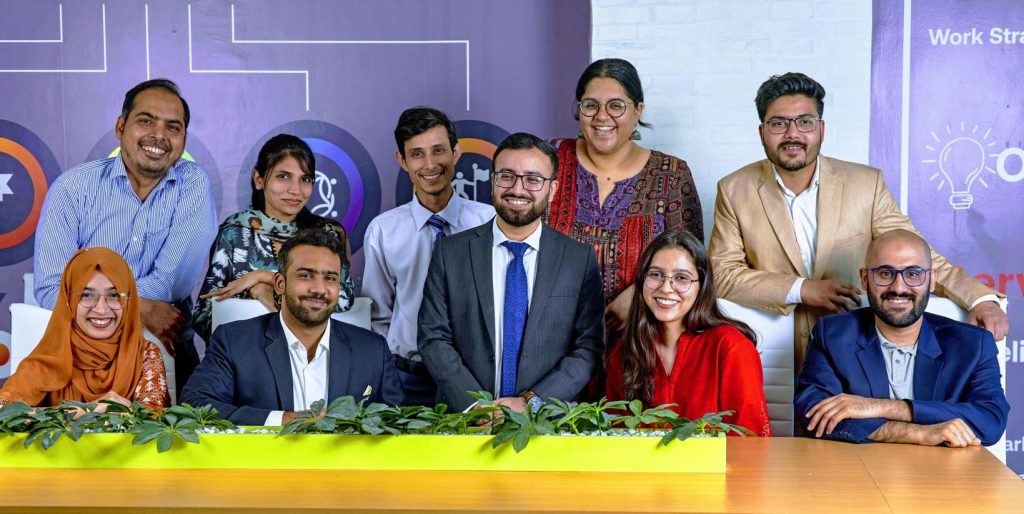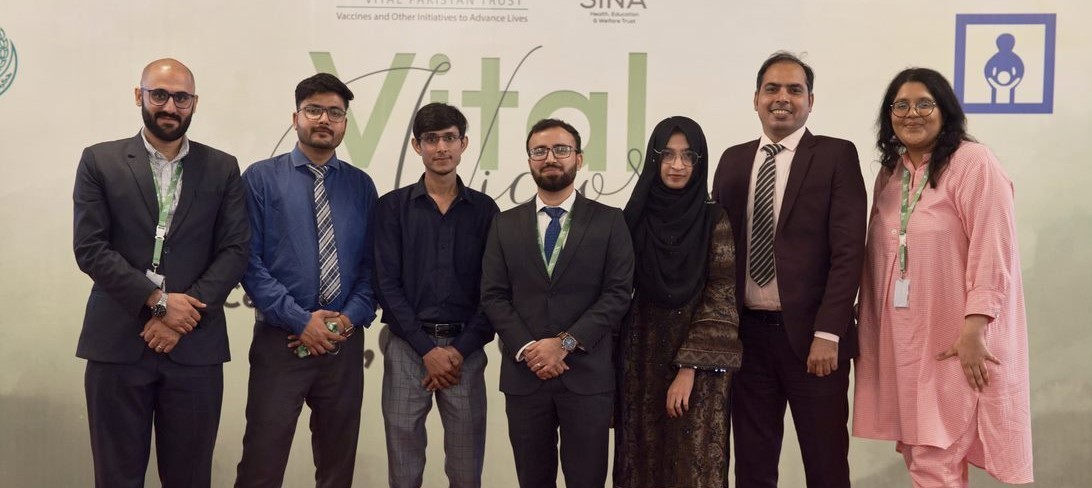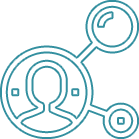We are currently releasing a series of articles containing interviews with Pakistani women who are employed in the technology industry, either locally or globally. Our aim is to showcase their accomplishments and contributions to both the industry and their communities.
These remarkable women are tackling actual problems, defying stereotypes, and making significant advancements in the tech field. The interview series highlights the fact that despite Pakistan having one of the lowest rates of female participation in the job market, there is still a wealth of talented women who are utilizing technology to achieve remarkable outcomes.
Today, we are featuring Fareeha Shakil. Read on to learn more about her work and get inspired.

1. Tell us a little about yourself, your background, your education, and your work.
I am a Computer Science graduate by education, a Data Engineer by profession, and a reader by passion. I love to play with numbers and read and explore interesting topics – be it fantasy, mysteries and thrillers, self-development, or data science. I am passionate about using data to solve problems and have experience in interpreting and analyzing data to gain insights and provide analytics, but my greatest skill is asking the right questions at the right time. I have the confidence to work under pressure and manage issues while maintaining project progress. I know how to deliver excellent results as I have been serving the tech industry for over 4 years in the banking, insurance, and healthcare sectors, which include Habib Bank Limited, EFU General Insurance Ltd., and Vital Pakistan Trust. Working in these diverse organizations, with their focus on inter-department work, allows me to improve my job knowledge and soft skills, including communication and leadership skills. Furthermore, all these organizations, wanting to impose gender diversity and equality, even encouraged me to join the women’s empowerment committee to motivate young female computer science graduates to elevate their careers in the industry, particularly females from underrepresented groups.
2. What are your future plans/aspirations? How will it impact the community/society/your team/your project?
Since education is the fundamental right of every girl, tech education can empower them with opportunities to learn and become financially independent. I joined the WomenInTech platform to help fellow women and bridge the industry-academia gap. What we learn in the university and what we implement in the job are two different things, and I want everybody to understand this and explore the domain of his or her interest.
3. Please brag about your career accomplishments. What are the things you are proud of?
Being a girl and in tech, especially within Pakistan’s patriarchal context, is still underrated. I learned this when preparing for the NED University of Engineering and Technology entrance exam. Acing the exam, I chose Computer Science and Information Technology as my major to break that stereotype. While there, I explored many elements of computer science, particularly Android-based application development. However, starting my career at Habib Bank Limited as an IT intern in 2019, I realized my passion for database query writing. With my work as a data analyst at EFU General Insurance Ltd. in 2020, I delved into data extraction and developed a query-based ELT technique for the IFRS-17 project assigned by SECP. With an inclination towards data engineering, in 2021, I joined Vital Pakistan Trust, an NGO working for maternal, neonatal, and child health (MNH) in the underrepresented areas of Karachi, as a Data Engineer. Here, I designed and developed a central data repository for real-time data reporting and analytics, further expanding my interest in data science as a tool to implement an e-health care management system.
I was the only female data analyst in EFU General, and I am the first and only female data engineer in Vital Pakistan Trust, leading the mainstream research project of PRiSMA (Pregnancy Risk Stratification Innovation and Measurement Alliance for Maternal and Newborn Health). Still, it didn’t stop me from learning, growing, and making way for other women to join the tech industry.
4. What has been your best education/career decision, and why?
I believe opting for computer science as my major is the best career decision ever. I initially had an interest in Android application development, but later with an understanding of data and digitalization, switching towards Data Science was one of the finest choices for me. This field has many opportunities to offer and has both tech and business acumen to grow.

5. What’re the best lessons you’ve learned?
I’ve learned lessons from every senior I’ve worked with, but the best lesson I’ve learned from my current boss is understanding the power of context before proceeding to the task.
Apart from that, I’ve learned a super important principle: Explore, learn, implement, and grow. Be consistent and resilient.
6. Which woman inspires you and why?
There is no single woman who inspired me. Instead, every woman is impressive. From a teenage girl working on the farm to an entrepreneur, everyone is striving to outgrow their weaker version into the stronger one and thriving to bring their contributions to the table.
7. Do you think Pakistan has changed as a society in terms of accepting career-oriented women? What needs to change to help more women come forward?
Pakistan has constantly been improving regarding accepting career-oriented women. One thing society needs to understand is the definition of working women or career-oriented women. The equality and opportunity a career-oriented woman talks about are cerebral opportunities and not physiological equality. That means a woman is an equal candidate for being a CEO and a mother as any man without questioning her gender or physical strength. I believe we, as a nation, should encourage women in the workplace to take the more challenging role, be active decision-makers on the board and remove the gender pay gap.
8. What will be the biggest challenge for the generation of women behind you?
The biggest challenges for the next generation of women may include balancing work and personal life responsibilities, breaking through gender stereotypes and biases, and striving for equal representation in influential spheres. Additionally, addressing intersectionality and promoting inclusivity for women with diverse backgrounds will be crucial for creating a more equitable society.

9. What would it be if you could change one thing about the tech industry/business?
One is to change the mindset that a woman can not have a position of power. Second, if someone wants to switch their tech stack even after a successful career of 5 years, have faith in the skillset and not in the number of years of experience they have.
10. How can WomenInTechPK help you and other women?
WomenInTechPK, a women-centric organization, I believe, can help me to bridge the industry-academia gap and empowers and encourage women, especially in the tech field, to keep growing and prosper by introducing diversity, inclusion, equality, and opportunity at every level.
You can follow Fareeha Shakil using her profile(s) below, and please do not hesitate to hire her for your next project.
LinkedIn: https://www.linkedin.com/in/fareeha-shakil-90b35a170/
Twitter: https://twitter.com/imfareehashakil
Instagram: https://www.instagram.com/fareehashakil/


